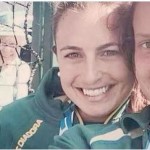 How can young doctors and physiotherapists get involved?
How can young doctors and physiotherapists get involved?
Paul Dijkstra (@DrPaulDijkstra)
I’m passionate about high performance medical teams and how they work. I used the lead-up to yesterday’s opening ceremony of the 20th Commonwealth Games in Glasgow, Scotland, to chat with participants from different countries here with me in the Village. The excellent sports clinicians are very busy, running around and working long hours to plan and deliver world class medical services to thousands of elite athletes and officials (6500 from 71 nations competing in 17 sports over 11 days!).
I asked “What are the key attributes of Sports Doctors and Physiotherapists working at a major event?”. I asked clinicians and also asked the coaches and management what they expect from good medical teams. Here are top attributes:
- ‘Be comfortable to work in an open and collaborative clinical environment (a flat hierarchy) amongst a group of medical, science and coaching professionals where good people do what they’re good at’: Dr Mike Loosemore, Chief Medical Officer of Team England. (@DoctorLoosemore)
- ‘Make sure you’re well qualified and experienced for the job’. Easier said than done… It takes 10-12 years of hard work and study to become a specialist Sport and Exercise Medicine Physician and good jobs don’t fall into your lap! Medical students and young doctors in training should not hesitate to get out there and volunteer. ‘Chase knowledge’ said one coach. ‘Build relations with colleagues, physiotherapists, teams, coaches, athletes and sporting officials’. Angela George, Team England physiotherapist agrees: ‘Be prepared to volunteer for every opportunity, get your name known and gain experience in lots of different sports. We all started out in community sport and now have the opportunity to work at the pinnacle of elite sport.’ Really good advice – offer to shadow and assist senior clinicians in the policlinics or next to the fields in smaller local clubs or school events. Be willing to work hard for little or no pay. (@PhysioAnge)
Kudos to Mike Loosemore and Team England management who’ve allowed British marathon runner and Specialty Registrar in Sport and Exercise Medicine (ST5 SEM), Rebecca Robinson to work as part of the Team England medical staff. Market yourself: ‘Blog, write and tweet…’ watch this space: Rebecca will share her experience in a BJSM blog soon! (rjpRobinson)
- ‘Connect with the athlete’ says Paul Treu, Head Coach to the Kenyan Rugby Sevens team. ‘It is so important for the Team Physician to be able to really understand and appreciate the expectations of each individual athlete’.Dr Stephen Chew, Team England doctor agrees: ‘Attention to detail is important – know the athlete, know the venue and know the sport’. (@paultreu)
- ‘Be able to adapt to the different environments without compromising on your standards of clinical care’ says Dr Karen Schwabe, here with the South African Team. She added: ‘Be ready to give energy – know how to pace yourself, do some exercise and get down time’. Karen has vast experience in rugby and endurance sport having just published three landmark papers in the BJSM – the SAFER studies.
- ‘Know your place – the athletes are here to perform. When you’ve seen an injured athlete, don’t keep focusing on that injury or illness by constantly asking the athlete how he / she is doing. They will tell you!’ A valuable lesson I think; our instinct as doctors is to be caring, empathetic and protective. These are all good attributes but should be applied in a sensitive way in a performance focused environment.
- Laura Hanna is a very experienced physiotherapist and leading Team England’s physiotherapy team: ‘Experience, sound clinical knowledge, flexibility and ability to deal with whatever comes through the door gives physiotherapists working in a multi-sport an advantage. Long hours and putting your hand to anything will help and importantly having a great sense of humor and fun makes anything seem possible.’li>
- ‘You have to be able to enjoy working in a complex and challenging environment and be passionate about working in sport’, wise words to end this short blog from Dr Bruce Hamilton, leading the New Zealand medical team here.
Enjoy the Commonwealth Games!
PS: BJSM Editor’s comment – Follow @DrPaulDijkstra and when he get clearances he’ll keep us informed. Health professionals are part of the TEAM at the Commonwealth Games so they need media clearance of course. He’ll be contributing to the @weRengland twitter feed (Who comes up with those nAmes?)
Paul was too humble to put this in his Blog but his BJSM paper “Managing the Health of the Elite Athlete” has taken off – it’s gone viral as far as journal articles go. You can read it free tonight here once you turn the TV off.